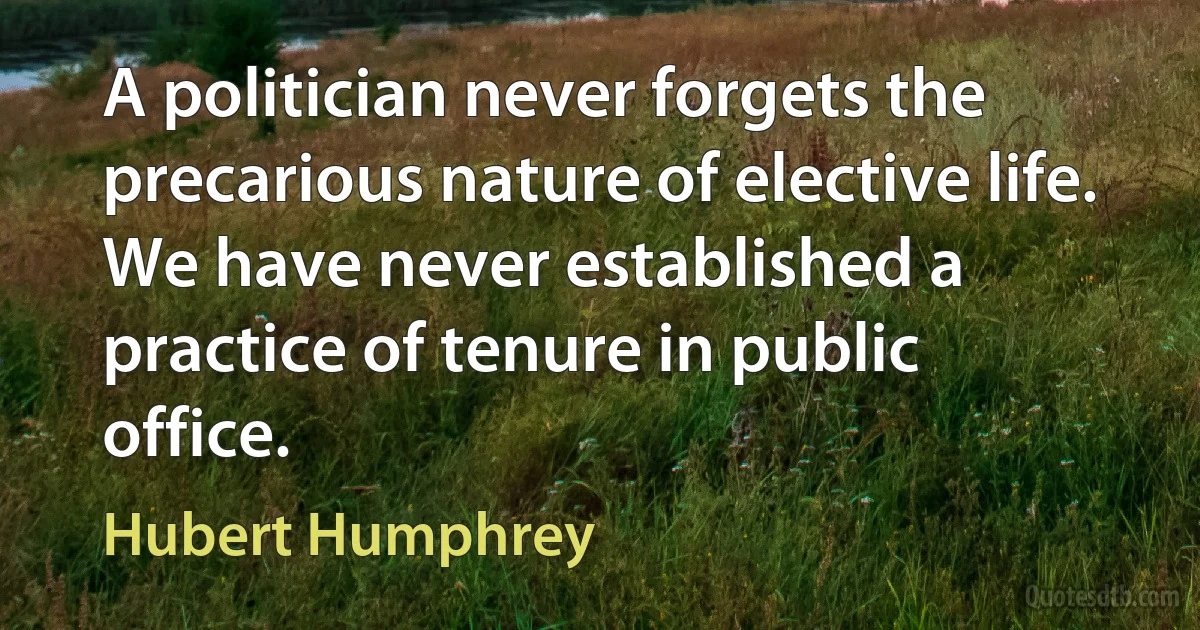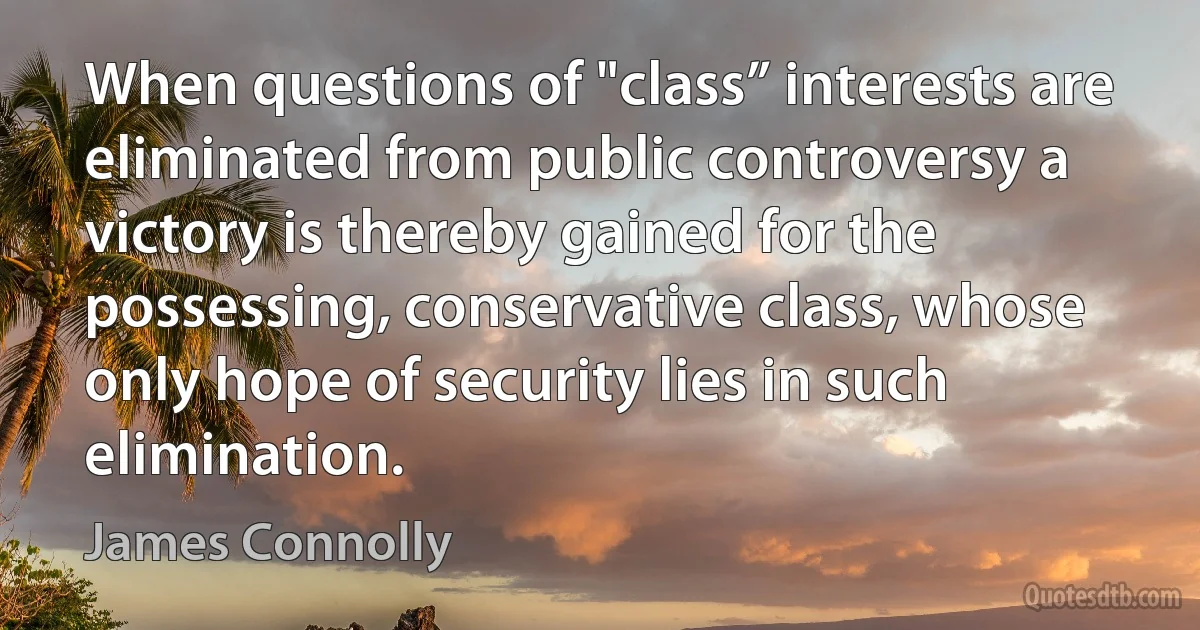Public Quotes - page 72
The important Keynesian insight is that a high propensity to save will not generate high national saving unless it goes into investment, into accumulation of real capital. The "paradox of thrift" makes this point in an extreme way. In certain circumstances, when there is no demand for investment around, the economy can be no better off, or even worse off, if a thrifty public cuts consumption.

James Tobin
India lives in her villages, we are told in every other sanctimonious public speech, That's bullshit. India doesn't live in her villages. India dies in her villages. India gets kicked around in her villages. India lives in her cities. India's villages just live only to serve her cities. Her villages are her citizen's vassals and for that reason must be controlled and kept alive, but only just.

Arundhati Roy
Arundhati Roy risked the international fame she so clearly cherishes by going public with blatant lies about atrocities against named Gujarati Muslim women who turned out to be either non-existent or abroad at the time of the riots. Perhaps a fiction writer can afford this, but the news media with their deontology of accuracy and objectivity made themselves guilty of similar howlers.

Arundhati Roy
The eyes of the people are upon us. [...] If we despond, public confidence is destroyed, the people will no longer yield their support to a hopeless contest, and American liberty is no more. [...] Despondency becomes not the dignity of our cause, nor the character of those who are its supporters. Let us awaken then, and evince a different spirit, - a spirit that shall inspire the people with confidence in themselves and in us, - a spirit that will encourage them to persevere in this glorious struggle, until their rights and liberties shall be established on a rock. We have proclaimed to the world our determination 'to die freemen, rather than to live slaves.' We have appealed to Heaven for the justice of our cause, and in Heaven we have placed our trust. [...] We shall never be abandoned by Heaven while we act worthy of its aid and protection.

Samuel Adams
According to the dictionary, to administer is to govern, or to manage a public or private business. It means, therefore, to seek to make the best possible use of the resources available in achieving the goal of the enterprise. Administration includes, therefore, all the operations of the enterprise. But as a result of the usual way of organizing things to facilitate the running of the business, a certain number of activities constitute the special departments; the technical department, the commercial department, the financial department, etc., and the scope of the administrative department is found to be reduced accordingly.

Henri Fayol
The meaning that I have given to the word administration and which has been generally adopted, broadens considerably the field of administrative science. It embraces not only the public service but enterprises of every size and description, of every form and every purpose. All undertakings require planning, organization, command, co-ordination and control, and in order to function properly, all must observe the same general principles. We are no longer confronted with several administrative sciences but with one alone, which can be applied equally well to public and to private affairs and whose principal elements are today summarized in what we term the Administrative Theory.

Henri Fayol
Amongst the great and numerous dangers to which this country, and particularly the monarchy, is exposed in consequence of the enormous public debt, the influence, the powerful and widely-extended influence, of the monied interest is, perhaps, the most to be dreaded, because it necessarily aims at measures which directly tend to the subversion of the present order of things...I mean an interest hostile alike to the land-holder and to the stockholder, to the colonies, to the real merchant, and to the manufacturer, to the clergy, to the nobility and to the throne; I mean the numerous and powerful body of loan-jobbers, directors, brokers, contractors and farmers-general, which has been engendered by the excessive amount of the public debt, and the almost boundless extension of the issues of paper-money.

William Cobbett
It is time the nation should be roused from its philanthropic dream; that it should see this matter in the true light; and that some means should be taken to put a stop to the increase of Blacks in this country, at any rate, where they have made no little progress in changing the colour of the inhabitants. It is truly shocking to see the number of English women, who are married to Negroes: our streets and public walks are continually disgraced by the disgusting spectacle; and whom are we to blame but ourselves for foolishly yielding to the importunities of those who have the address to make us pay for the genteel education of these sable intruders?

William Cobbett
How old do I think the earth is? You know what? I don't have any idea. I know it's pretty old, so it goes back a long, long way. I'm not sure anybody actually knows completely and absolutely how long, how old the earth is. I hear your mom was asking about evolution. You know, it's a theory that's out there. It's got some gaps in it, but in Texas we teach both creationism and evolution in our public schools, because I figured you're smart enough to figure out which one is right.

Rick Perry
Citizens of a Jeffersonian democracy can be as religious or irreligious as they please as long as they are not "fanatical.” That is, they must abandon or modify opinion on matters of ultimate importance, the opinions that may hitherto have given sense and point to their lives, if these opinions entail public actions that cannot be justified to most of their fellow citizens.

Richard Rorty
I intend to do what little one man can do to awaken the public conscience, and in the meantime I am not frightened by your menaces. I am not a giant physically; I shrink from pain and filth and vermin and foul air, like any other man of refinement; also, I freely admit, when I see a line of a hundred policemen with drawn revolvers flung across a street to keep anyone from coming onto private property to hear my feeble voice, I am somewhat disturbed in my nerves. But I have a conscience and a religious faith, and I know that our liberties were not won without suffering, and may be lost again through our cowardice. I intend to do my duty to my country.

Upton Sinclair
The simple organization of a people into a national body, composite or otherwise, is of itself an impressive fact. As an original proceeding, it marks the point of departure of a people, from the darkness and chaos of unbridled barbarism, to the wholesome restraints of public law and society. It implies a willing surrender and subjection of individual aims and ends, often narrow and selfish, to the broader and better ones that arise out of society as a whole. It is both a sign and a result of civilization. A knowledge of the character, resources and proceedings of other nations, affords us the means of comparison and criticism, without which progress would be feeble, tardy, and perhaps, impossible. It is by comparing one nation with another, and one learning from another, each competing with all, and all competing with each, that hurtful errors are exposed, great social truths discovered, and the wheels of civilization whirled onward.

Frederick Douglass



